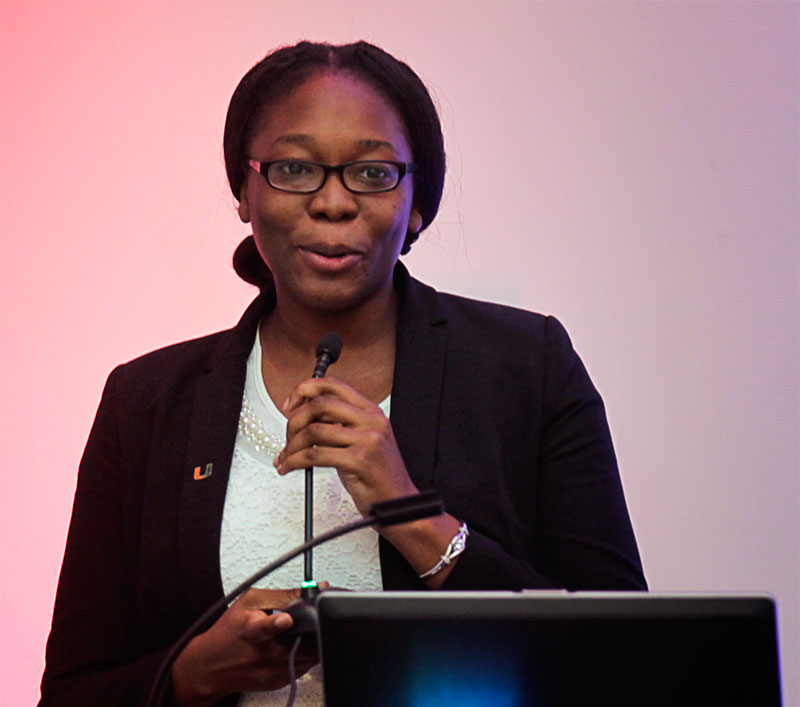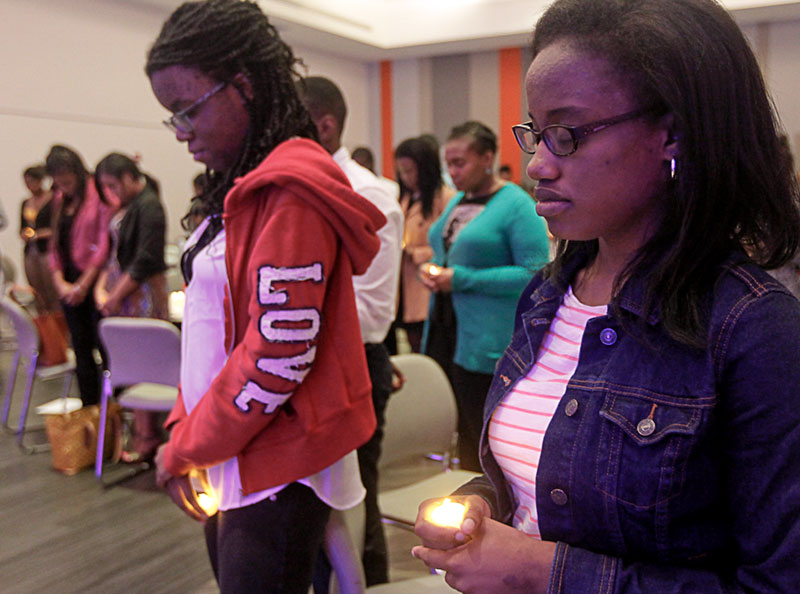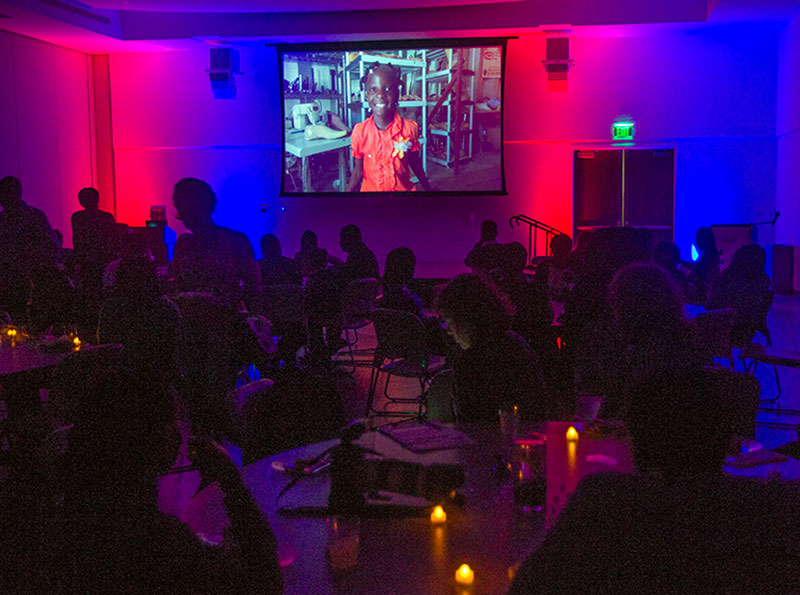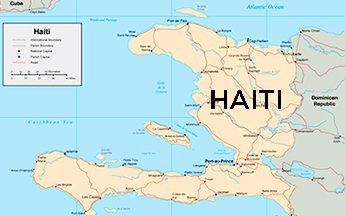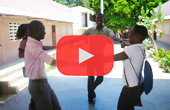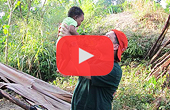The University of Miami community marks the five-year anniversary of the Haiti earthquake with a moment of silence, candlelight vigil, and hope for the future.
Guerdiana Thelomar vividly remembers. The confusion. The fear. The images coming out of Haiti five years ago of broken bodies, shattered lives, and a country in ruin from a 7.0 magnitude earthquake that killed thousands upon thousands.
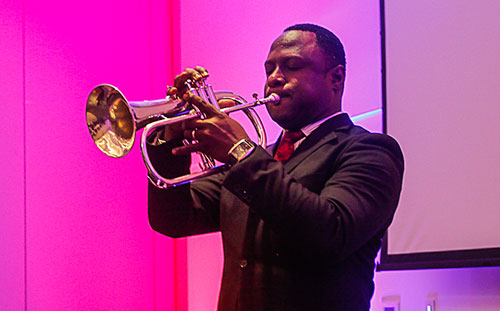 Jonathan Laurince played the Haitian National Anthem during the five-year remembrance ceremony at the University of Miami.
Jonathan Laurince played the Haitian National Anthem during the five-year remembrance ceremony at the University of Miami.“I prefer to talk about what came after those days,” Thelomar, president of the University of Miami’s Haitian student organization Planet Kreyol, told a group of students, community leaders, and guests gathered for a candlelight vigil on campus to mark the five-year anniversary of the earthquake on Monday, January 12, 2015.
She said she witnessed a new sense of pride emerging in Haitians. A love of country. A need to go back, or visit for the first time. So moved was she that Thelomar developed a program called Generation Hope aimed at working with young Haitians to develop leadership skills and discover ways to improve their lives and their country.
At the University of Miami Monday, much of the afternoon was spent remembering the victims of the earthquake, and discussing the unique relationship the University has with the island nation. Each year, hundreds of UM faculty, staff, students, and alumni travel to Haiti to volunteer, share knowledge, and work with Haitians on various projects.
During an afternoon symposium at the Student Activities Center, several faculty members talked about projects underway in Haiti, from improving maternal and child health in the southwest corridor of Haiti and building a new, state-of-the-art hospital in Port-au-Prince to designing sustainable communities and providing legal help to stop deportations of Haitians living in South Florida.
Haitians just want opportunity, says Barth A. Green, the co-founder of Project Medishare and a UM neurosurgeon, “and the dignity of determining their own fate.”
A moment of silence was held at 4:53 p.m., the time when the earthquake struck Haiti.
At the evening program, Sergio M. Gonzalez, senior vice president of Advancement and External Affairs at UM, welcomed the students, guests, and elected officials, including Miami Mayor Tomás Regalado.
“Our work in Haiti truly exemplifies the service dimension of the University of Miami, and our enduring commitment to make a difference in the world,” remarked Gonzalez.
Regalado recalled how he went to the Notre Dame d’Haiti Catholic Church in Miami’s Little Haiti when news of the earthquake surfaced. The city and the community responded with volunteers, aid, and supplies. Port-au-Prince, he says, was one of the first cities to become a “sister city” to Miami many years ago.
“We are a donor community,” Regalado says. “We are a community with a heart.”


